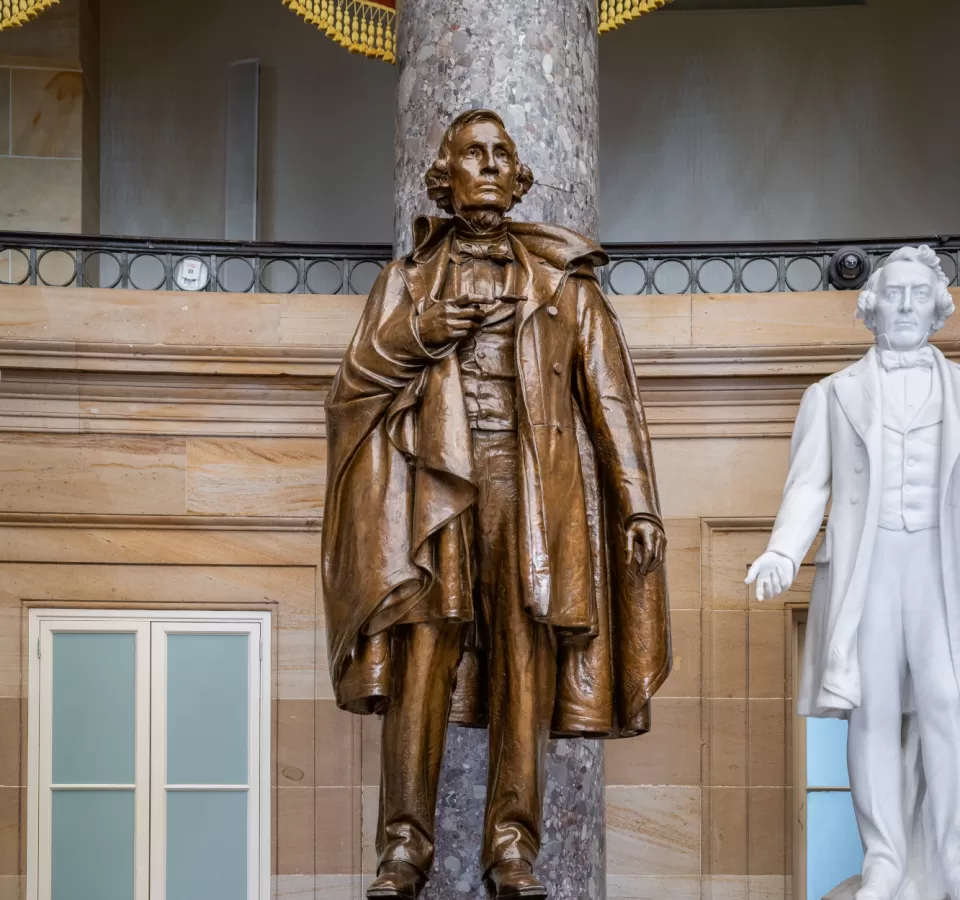This statue of Jefferson Davis was given to the National Statuary Hall Collection by Mississippi in 1931.
Jefferson Davis, born June 3, 1808, in Christian (now Todd) County, Kentucky, was raised on his family's small plantation near Woodville, Mississippi. Through the generosity of his older brother Joseph, he studied at St. Thomas College, Washington County, Kentucky, and at Transylvania University before graduating from the United States Military Academy in 1828. He served in the Army until 1835, when he became a planter.
He was elected to the U.S. House of Representatives in 1845 but resigned the following year to command the "Mississippi Rifles" in the Mexican War. From 1847 to 1851 he served as a U.S. senator. As secretary of war for President Franklin Pierce (1853-1857) he strengthened the Army and coast defenses, directed railroad surveys, and supervised the enlarging of the U.S. Capitol and the construction of a water viaduct in Washington, D.C. He re-entered the Senate in 1857 and was recognized as a spokesman for the South. When Mississippi seceded, Davis resigned and accepted command of Mississippi's military forces. Hoping to be appointed commander of all southern armies, he found himself instead elected president of the Confederate States. When the Confederacy surrendered, Davis was captured and imprisoned in Fort Monroe for two years, indicted for treason (but never brought to trial), and finally released on bond in 1867.
After travel abroad and a few unsuccessful business ventures, he made his home at "Beauvior," in Biloxi, Mississippi, and wrote Rise and Fall of the Confederated States. Jefferson Davis died in New Orleans on December 6, 1889.

